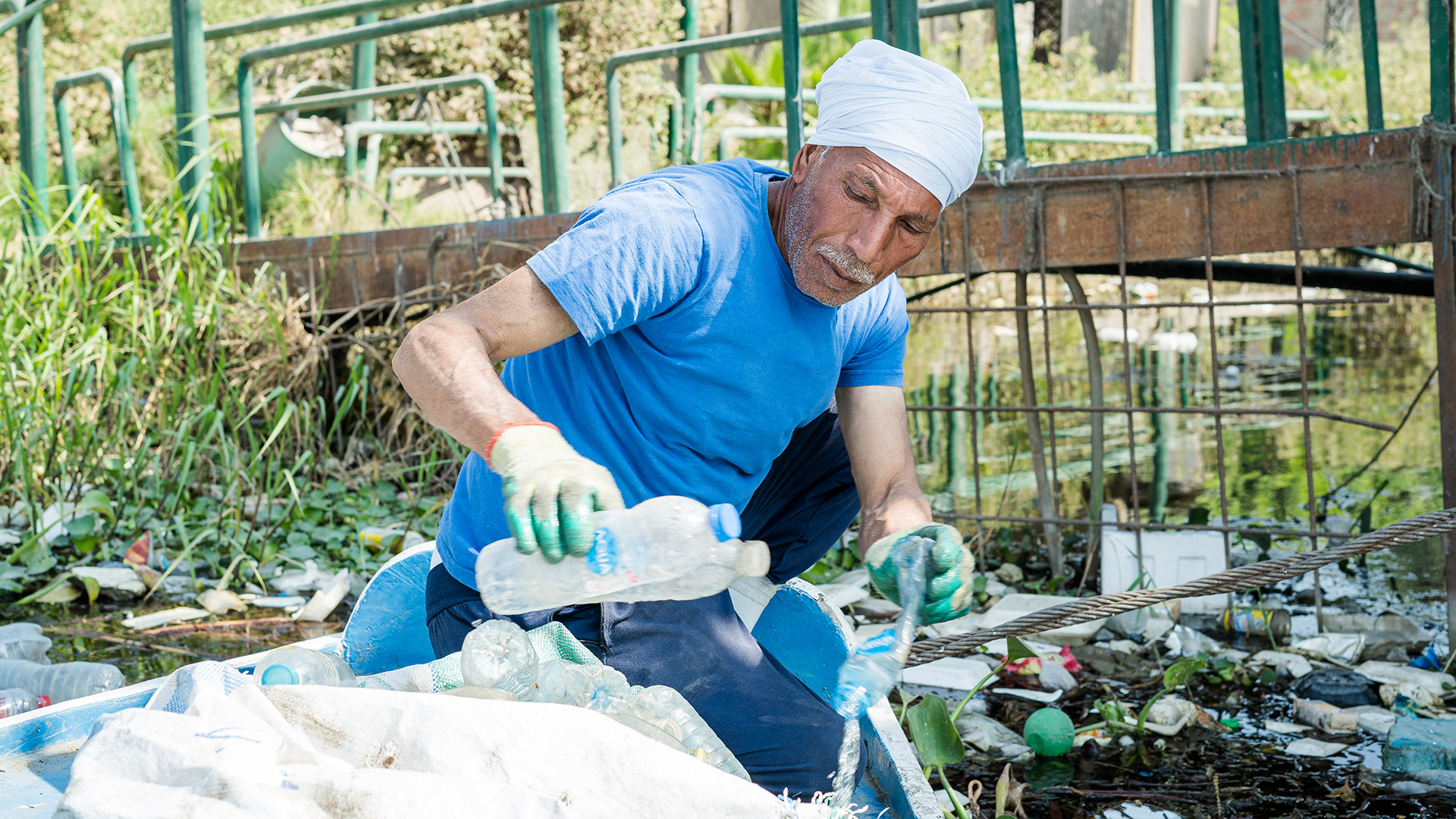Over-use of antibiotics kills thousands annually in Egypt and Sudan.
An investigation has found that thousands of Egyptians and Sudanese die annually from antimicrobial resistance (AMR), due to the over-use of antibiotics. These deaths are also attributed in part to environmental pollution, climate change, contaminated water, increased livestock production, fragile health systems and a lack of monitoring. Experts believe that AMR is killing more people than better-known diseases like HIV, malaria and tuberculosis. The situation is also alarming because Sudan is one of the main sources of meat in Egypt.
Bad memories
“He lost the battle against microbes,” says Nada, a researcher at a Cairo cancer centre who lost her father to AMR last year. Sadness is still holding her back from expressing her emotion, but she repeatedly uses the phrase ‘antimicrobial resistance’.
The story dates back to November 2021, when her father developed an infection and symptoms of coughing, sweating, shaking chills, fever and chest pain. He was diagnosed with pneumonia and given standard antibiotics, but they didn’t work; he needed stronger, more expensive drugs. After trying different things with no improvements, the doctors told Nada there was nothing they could do for him, she recalls in Cairo, crying.
The family of Abdul Hamid Mahjoub in Khartoum has had the same bad fortune. Hamid, a thirty-five-year-old father of two, says that his four-year-old developed AMR from milk injected with penicillin.
“My child experienced continuous symptoms of stomach troubles and vomiting six months ago. When I took him to the doctor, he asked me to change the farm where I get milk for the child. A few weeks after I changed the milk seller, my child’s health started to improve. When I went back to the doctor, he told me that what happened has become a common matter, because milk sellers add penicillin to their product as it protects it from spoilage.”
Spread
In Sudan, about 55% of hospital deaths are due to antibiotic resistance, a source from Sudan’s health ministry in Khartoum claims. The source, who asks for anonymity because he is not authorised to talk to the media, says bacterial resistance to antibiotics has risen to 80-90% since 2020, adding that the ministry spends 45% of its drug budget on antibiotics. At least 1,136 new cases were documented in Sudan’s last national report on the matter last year, according to Mohammed Khider, a Technical Expert at the Scientific Research Society for Public Health in Sudan.
Addressing the COP27 climate change conference in Egypt last November, Egyptian Health and Population minister Khaled Abdel Ghaffar said that 1.27 million people worldwide die annually from illnesses directly resulting from AMR, which according to him means that drug-resistant infections kill more people than HIV/AIDS or malaria.
When bacteria enter the body, they multiply and can cause disease; since the discovery of antibiotics in the 20th century, they have been widely used to treat bacterial infections. However, these very small organisms have gradually adapted to the drugs and become harder to kill, resulting in what are known as ‘super bugs’.
Over-use
About 40% of citizens use antibiotics without a prescription, say Sudanese pharmacists. One of them, Mahmoud Shehata, attributes the increase in antibiotics use to a lack of government monitoring. “The health ministry has not issued strict instructions and directives to limit the spread of this phenomenon, so the dispensing of the antibiotics is uncontrollable,” he says. Another pharmacist, Azza Elyas, says that the most common antibiotics consumed by citizens are Azithromycin, Amoxicillin and Metronidazole, adding that she dispenses 10 to 15 courses of antibiotics a day.
Walid Elkhatib, a professor and former Head of the Microbiology and Immunology Department at the School of Pharmacy of Ain-Shams University in Cairo, believes the overuse of antibiotics is one of the main reasons for resistance. “Microbes’ survival depends on AMR – the more humans over-use antibiotics, the more ineffective they will become, especially with a lack of regulation.”
Animal feed
Farmers and milk sellers use antibiotics to make their products more profitable, which leads to an increase in AMR in humans. In small farms on the outskirts of Khartoum, the practice of adding antibiotics to milk or animal feed is widespread. This is done in order to fatten animals and prevent disease, without consulting specialised veterinarians. One farm owner, Abdul Aziz Badr al-Din, admits that the majority of producers add penicillin to milk before selling it.
Mohammed Khider, an expert in the field, says: “Sudan launched a behavioural change pilot project in 2018, the Antimicrobial Resistance Adaptation Programme, which focused on modifying prescription practices among farmers, veterinarians, antibiotic distributors and antibiotic consumers in rural communities.”
Abu Ammar, an Egyptian farm owner with cattle feed yards near Cairo, has witnessed the same thing there. He is sure that most farms in his area do it, not only to prevent disease but also to help animals gain weight quickly, though he denies doing so himself.
Professor Elkhatib says, “The antibiotics taken by animals may accumulate in their tissues due to their incomplete absorption, and might have a negative effect on human who eat this meat, helping to develop microbial resistance.”
Sudan earned more than $700 million from livestock exports in 2021, according to Central Bank statistics, the majority to Egypt, Saudi Arabia and the UAE.
Climate change and water pollution
Climate change is also increasing AMR, according to experts and international studies. This overlap between climate change and antibiotic-resistant infection is under-reported, especially in the Middle East, says Walid Elkhatib, the Egyptian Professor of Pharmacy. “Extreme weather events such as storms raise the scale of sewage discharge or sewer overflow into rivers and freshwater, as a result of the climate crisis,” he explains.
He further points out that many microbes are sensitive to changes in temperature; this means climate change may lead to an increase in the spread of bacterial, viral, parasitic and fungal diseases. Warmer temperatures affect microbial resistance and provide a better opportunity for airborne transmission. This means larger, more frequent outbreaks are predicted. Rising global temperatures will put pressure on the human physiology and immune system, decreasing its ability to protect the body.
A UN study, ‘Freshwater Strategic Priorities 2022-2025’, says furthermore that extreme weather events impact water quality and management and can cause wastewater and sewage to overwhelm treatment plants – known reservoirs for antibiotic-resistance genes – allowing the dissemination of untreated sewage to spread antibiotic resistance.
Strategies
Both countries are developing strategies to combat this phenomenon, with the help of international organisations. In November, the Egyptian government launched a three-phase strategy targeting the over-use of antimicrobial drugs. The first phase ended at the beginning of December, and included several workshops on the rationalisation of antimicrobial agents. The second phase will run for two months, with the aim of carrying out a study on the use of antibiotics in hospitals as well as measuring the economic burden resulting from their excessive use. The third phase, spanning three to six months, will gauge the benefits of applying the strategy.
Sudan joined the Global Antimicrobial Resistance Surveillance System in 2018 and has received training from the WHO to oversee the use and consumption of antibiotics. Ubai Khalifa, a Sudanese expert at the Bill and Melinda Gates Foundation who specialises in agriculture and livestock development, believes the solution lies in a reduction in antibiotic use, improved government control, and collaboration between government, the private sector and international organisations.
He concludes: “The required policy needs to maintain its effectiveness through rationalisation of use and the development of laws and governance systems that guarantee the dispensing and giving of antibiotics to animals under the direct supervision of veterinarians. All actors from the public sector, private sector and international organisations have an obligation to invest in preventive measures to reduce dependence on antibiotics, by supporting the expansion of the use of vaccines, attention to biosecurity standards, and the cleanliness and management of farms. Also, developing genetic improvement plans that identify disease-resistant strains could be an effective policy.”
This publication was made possible through the Candid Journalism Grant 2022, supported by the Federal Foreign Office of Germany.




